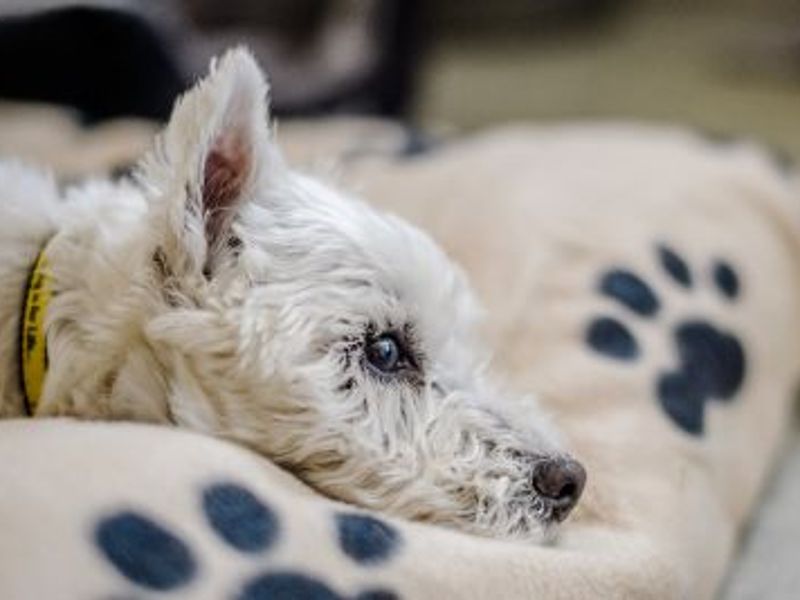Helping a dog cope with the loss of another pet
When an animal in the household dies, your dog's behaviour may change. Here's how to help them.

One of the things that we love most about our dogs is the deep bond they can form with their family, including other pets. Experts are still undecided about whether dogs can experience true grief and understand the permanence of death. But we do know that they can experience distress when separated from close friends.
If an animal in the household dies, surviving pets can sometimes seem clingy, anxious or more sensitive to things going on around them. They might even seem depressed, losing interest in playing, sleeping, or eating.
These changes could be a reaction to missing their friend, because they’re picking up on their owner’s sadness or a response to changes of routine. These are all normal responses. But they could also indicate an underlying medical condition. Talk to your vet if you see any sudden change in your dog’s behaviour.
How you can help your dog
Monitor your dog and seek help if needed
Remaining pets may begin to show signs of separation distress. These can include panting, pacing, whining, drooling, howling, barking, not eating treats while alone, or even refusing food entirely.
In the short term, try not to leave your pets alone. If you’re not sure how your dog is coping alone, consider using a camera to monitor them (there are many apps available for phones or tablets). If you’re worried, contact your vet for guidance or referral to a qualified behaviourist.
Don’t rush to remove reminders of your late pet
Having their things around might be difficult for you while you’re coming to terms with your loss. But your grieving pet might still be attached to the items. Suddenly removing things like beds and blankets could make them panic – though not always. All dogs respond to things differently, so watch your pet’s behaviour to try and work out what would be easier for them.
If you have more than one surviving pet, watch for changes in their relationships
Your surviving pets will now need to work out how to live without their old friend. They may have relied on each other in different ways and the loss could affect their confidence and dynamic. Allow them to work out their new relationship. If you notice any changes or you are concerned about your dog’s behaviour, then contact your vet for a referral to a qualified behaviourist.
Go on lots of walks
Exercise can be an excellent stress reliever for dogs and can also be a helpful in managing your own grief. Visit both familiar and new places and let your dog explore at their own pace.
Stick to your normal routine
Try to keep to your normal routine, to keep thing consistent for your remaining pets as much as possible. Try not to change the way you interact with your surviving pets.
Don’t rush to get another dog
A new dog might not help your surviving dog feel better. The change could actually make them feel more uncomfortable. It might be something to consider in the future, but it has to be the right time for your whole family.
Support for you
Seeing your beloved pets struggling at any time in their lives can be incredibly upsetting. Even more so if you are going through the same experience. Make sure you talk to friends and family about how you’re feeling.
If you feel you need extra support, the Pet Bereavement Support Service funded by Blue Cross can offer you a listening ear and further advice. Their trained counsellors are contactable on 0800 096 6606 and are available between 8.30am and 8.30pm every day.
You can also email the Pet Bereavement Support Service Team at pbssmail@bluecross.org.uk and read more about them on their website.
Give a gift in loving memory
Honour the memory of a special dog. Your kind gift will help us care for around 13,000 dogs each year.



